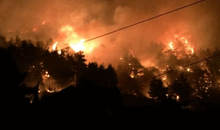
 Flash News
Flash News
International drug search: 36-year-old arrested in Durrës (NAME)
Veliaj's appeal to be heard today in the High Court
Today's hearing at the Fier Court, Salianji requests conditional release
Taxi collides with truck on Lezhë-Shkodër axis, driver taken to Trauma in serious condition
At least 91 dead in Texas floods

The significant decline in the livestock sector reflects the socio-economic developments during the last years in Albania. Official data from INSTAT show a significant decrease in the number of cattle, mainly during the last three years. Thus, the number of cattle decreased by 65 thousand heads, sheep by 186 thousand, while the number of goats decreased by 50 thousand heads.
The director of the Rural Areas Support Program, Petrit Dobi, told VOA that immigration has had a profound impact on the livestock sector.
"Not only statistical data, but all of us who work in rural areas and who have contact with these areas and shepherds, see this change. It's a big change, especially in recent years starting with the pandemic. Apparently, people have seriously thought about making a change in their lives, and the fact that these populations in hard-to-live areas have not been supported is one of the main reasons that the population has moved and this activity, livestock, is being abandoned." , he says.
The director of the Rural Areas Support Program, Petrit Dobi, says that the departure of people, especially young people from mountainous areas, is directly affecting the decline of the livestock sector, but also the impossibility of transmitting a special culture, built among centuries, such as that of shepherds.
"Shepherds are the ones who have created a whole culture that is related not only to agricultural production, but also to by-products. Various cheeses; the mishavina in the north, or the bellows sauce in the south, were created by shepherds, not by technologists. We can also say that instruments, work tools, feet, fiddle or bagpipe are instruments created by these people. And very rich folklore is also connected with this", he says.
In addition to emigration and the departure of a large part of the inhabitants from the mountainous areas, according to Professor Arsen Proko, climate changes have also shown their influence in the livestock sector, since most of the pastures are in areas very sensitive to these changes.
"It is known that the average annual temperature has increased by 1.5 degrees, which means that the beech forest will rise 200 meters higher. So the alpine pastures will be narrowed. Of course, there are also appropriate management plans under climate change conditions. But generally pastures suffer from misuse more. There are many rare plants threatened by human activity", says Professor Arsen Proko.
For Professor Proko, the almost annual fires, especially in the mountainous areas where most of the pastures are found, directly affect the performance of the livestock sector.
"Fires are also one of the very negative phenomena that influence the degradation of pastures. Therefore, this is a very important issue that must be dealt with in order to restore the vegetation of the pastures", he says.
According to official data, in 2020 Albania had a fund of 478 thousand hectares of pastures, while three years later, this area was reduced by 29 thousand hectares, which testifies to the deep and rapid impact of global warming on the livestock sector. fires in forests and pastures as well as human activity to the detriment of the natural environment. VOA
Latest news


International drug search: 36-year-old arrested in Durrës (NAME)
2025-07-08 09:50:48
Thethi, tourists "criticize" modern trend
2025-07-08 09:39:54
Fire on Mount Dukat still active, Llogara National Park at risk
2025-07-08 09:28:12
Veliaj's appeal to be heard today in the High Court
2025-07-08 09:16:02
"Bad sign for democracy"/ Parliament neglects reporting by institutions
2025-07-08 09:04:56
Today's hearing at the Fier Court, Salianji requests conditional release
2025-07-08 08:56:39


Horoscope, what do the stars have in store for you today?
2025-07-08 08:16:19
Weather forecast/ How temperatures will vary throughout the day
2025-07-08 08:02:37
Morning Post/ In 2 lines: What mattered yesterday in Albania
2025-07-08 07:48:30





Marrëdhënia që s’është romancë, por s’është as thjesht kolegiale
2025-07-07 21:39:13
Citizen is asked to pay 2.5 million for a non-existent meter
2025-07-07 21:28:03

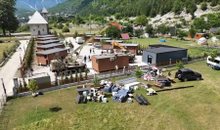


What is the ideal air conditioner temperature in summer?
2025-07-07 20:53:46
GJKKO left him in prison, Meta appeals the decision
2025-07-07 20:38:05
Where is Ronaldo after missing Diogo Jota's funeral?
2025-07-07 20:38:04

Messages from the author who killed Ilaria Sulla in Rome are revealed
2025-07-07 20:20:12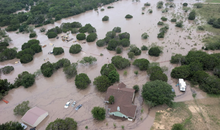
At least 91 dead in Texas floods
2025-07-07 20:12:02
Elbasan, choked by smoke, scorched by conscience
2025-07-07 19:48:16
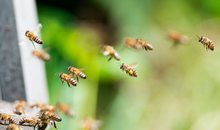
Swarm of bees attacks citizens in France, 24 people end up in hospital
2025-07-07 19:32:03
Dementia/Hearing loss may be a warning sign
2025-07-07 19:13:06
The decision for Malltez, Gjokutaj: Boomerang for SPAK and the Court
2025-07-07 19:01:08

Former Supreme Court member acquitted of asset concealment
2025-07-07 18:36:40

WIIW expert in Politiko: Brain drain is steadily weakening the Albanian economy
2025-07-07 18:11:41
Heart health is at risk from extreme heat, here's what you should be careful of
2025-07-07 18:10:18
Today Gert Bogdani would celebrate, Edlira Çepani's touching dedication
2025-07-07 17:40:45
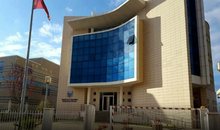





The striker severely accuses the Fenerbahce club: They tried to drug me
2025-07-07 16:21:03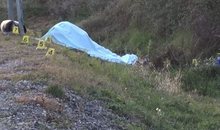
A decomposed body is found in Kolonjë, initial suspicions
2025-07-07 16:03:31
Accident in Saranda, car hits motorcycle, one injured
2025-07-07 15:58:56

The most fertile age for men and women
2025-07-07 15:40:52
Locals, Rama candidate in 5 municipalities
2025-07-07 15:32:22
Blushi: Meta's criminal kidnapping, incomparable even to Navalny's in Russia
2025-07-07 15:20:34
Meet the iPhone 17 Pro, the main innovations in design and technology
2025-07-07 15:09:09
Why the release of Abi Malltez does not free him; much less Albania
2025-07-07 15:00:12
‘Lidhjet klienteliste’ të mjekëve mbushin recetat e pacientëve
2025-07-07 14:57:33
Poland imposes border controls with Germany and Lithuania
2025-07-07 14:48:15

Caught transporting firearms from Kosovo to Albania, young man arrested (NAME)
2025-07-07 14:37:47
Theo Hernandez flies to Saudi Arabia for medical check-ups
2025-07-07 14:26:47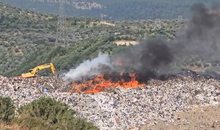

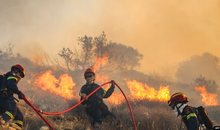
Scorching heat, Greece orders mandatory work holidays
2025-07-07 13:54:25




Trump expects Netanyahu to discuss Gaza ceasefire
2025-07-07 12:54:27

GJKKO releases Jamarbër Malltezi from house arrest
2025-07-07 12:35:02
Tourism among contrasts
2025-07-07 12:31:01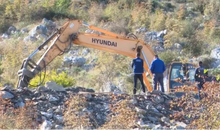
IKMT action in Theth, starts demolition of unauthorized constructions
2025-07-07 12:24:18

The Tirana-Kamëz line is destroyed by urban fire
2025-07-07 12:00:24




Poor direction!
2025-07-07 11:16:01


Rama to gather the country's mayors on July 9
2025-07-07 10:43:31
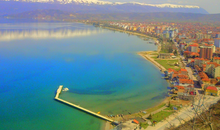
Ohrid Natural Park on the way to UNESCO's "black list"
2025-07-07 10:25:58

Registrations for the new school year begin in e-Albania
2025-07-07 09:59:09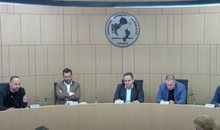
KAS decides the "fate" of the elections in four districts of the country today
2025-07-07 09:50:51
Rama does not give up on Vlora, visits the municipality again
2025-07-07 09:39:11


Fires in Gjirokastra, flames very close to cultural monuments
2025-07-07 09:12:49

Foreign exchange, the rate at which foreign currencies are sold and bought
2025-07-07 08:39:57

Horoscope, what do the stars have in store for you today?
2025-07-07 08:14:17
The week starts with scorching temperatures, the thermometer reaches 37°C
2025-07-07 07:58:36
Morning Post/ In 2 lines: What mattered yesterday in Albania
2025-07-07 07:45:15


